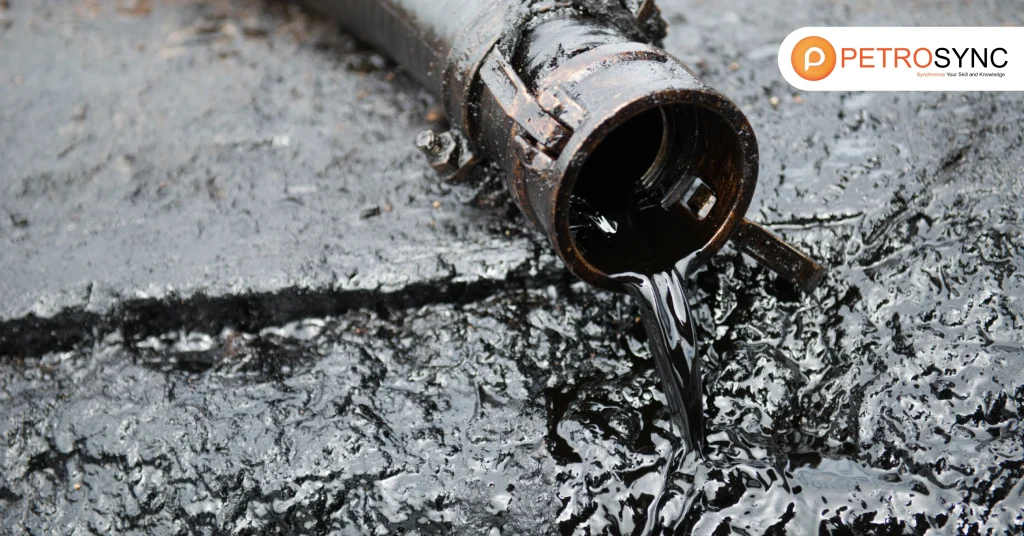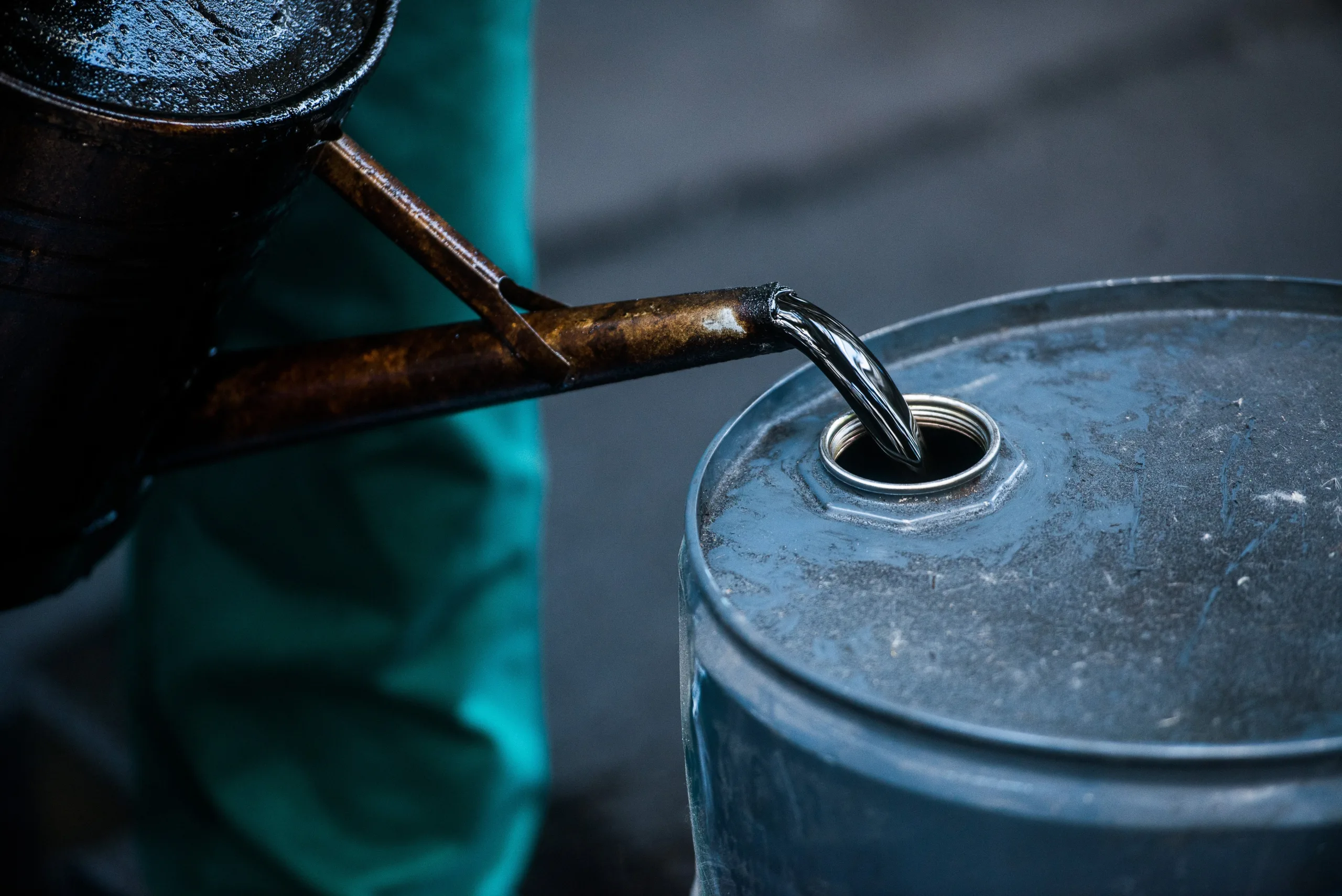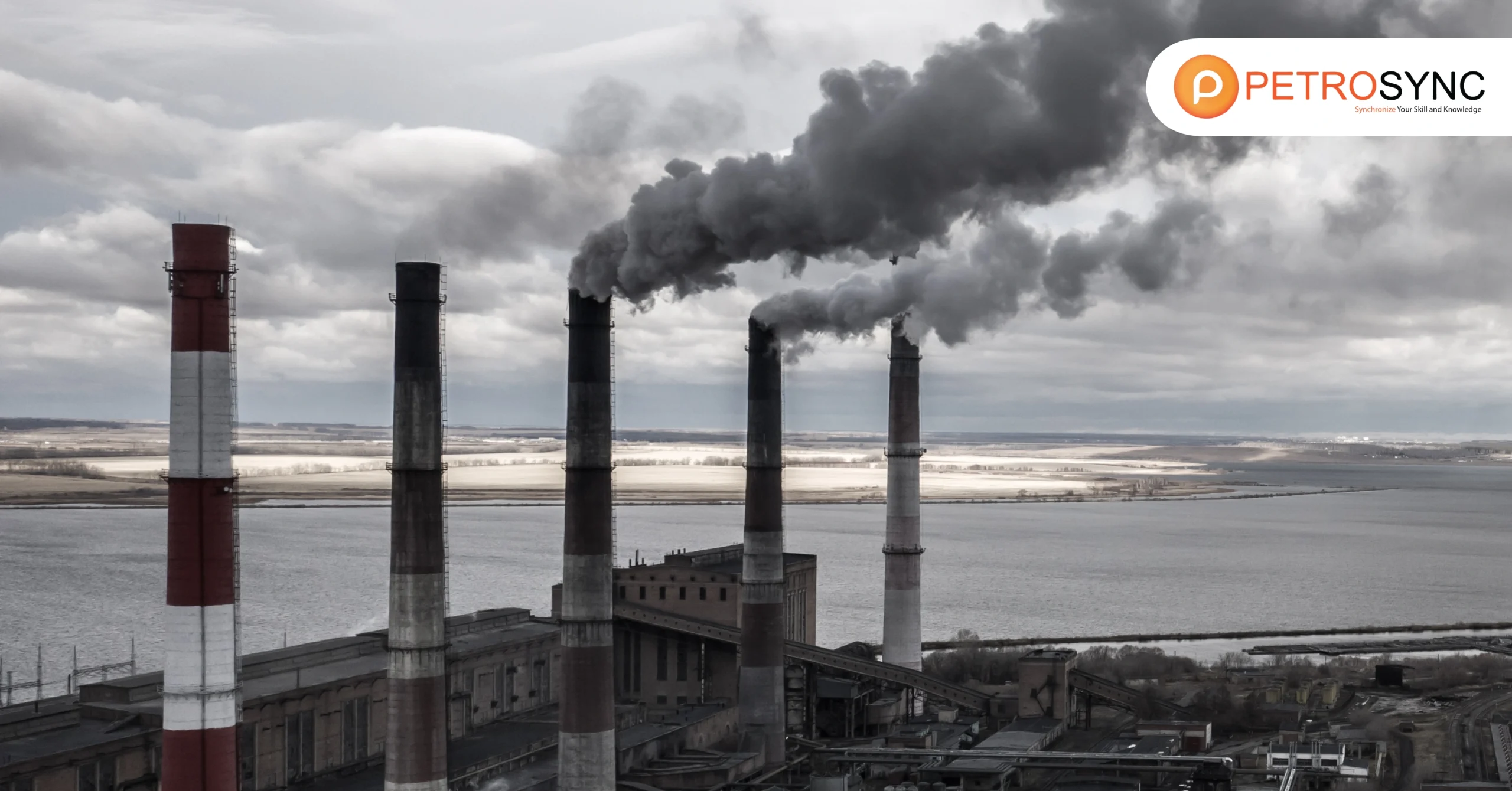Crude oil’s journey begins deep inside the Earth, where old organic compounds break down over millions of years at tremendous pressure and temperature. Plant and animal remnants are naturally transformed into a hydrocarbon-rich material known as crude oil. But its voyage does not finish underground.
Crude oil extraction, refining, and distribution require cutting-edge technology, huge infrastructure, and a wealth of knowledge. From crude oil tankers traversing oceans to crude oil futures driving global markets, this unique resource unites nature and industry, emphasizing its importance as the foundation of modern energy systems.
What Is Crude Oil?

Crude oil is an unrefined liquid petroleum derived straight from subsurface reservoirs. It is a complicated combination of hydrocarbon, sulfur, nitrogen, and oxygen molecules. The makeup of rock oil varies depending on its source, resulting in a comprehensive classification system based on density and sulfur concentration.
This natural resource proves incredibly valuable due to its versatility. Refiners process rock oil into various products, including gasoline, diesel, jet fuel, heating oil, and petrochemical plant essential for producing plastics and other materials. Rock oil impacts industries far beyond energy, playing a critical role in industrial and consumer goods.
Why Is It Called Crude Oil?
The word “crude oil” refers to its unrefined nature. Unlike refined petroleum products like gasoline, Petroleum remains in its raw form after extraction. This lack of refinement is what makes it “crude.” This substance is known as Petroleum because it is in its natural, unprocessed state.
rock oil is petroleum that has not been processed or refined in any way. Petroleum is defined as the raw material used to fuel a variety of industrial and consumer applications. Refineries take raw materials and convert them into usable products using procedures like distillation and cracking, adding value to what began as a raw resource.
Why Is Crude Oil Expensive?
Several factors contribute to the high price of crude oil:
-
Supply and Demand Dynamics:
Crude oil prices fluctuate based on global demand and supply. When demand increases or supply is disrupted, prices rise. For instance, geopolitical tensions or natural disasters can significantly impact Petroleum inventories, tightening global supply.
Petroleum prices react to many variables, including supply and demand prospects and the perceived risk of market disruptions. Economic growth can drive up the demand for crude oil, while slowdowns tend to lower demand and prices.
-
Production Costs:
Extracting crude oil isn’t cheap. Advanced technologies, skilled labor, and significant infrastructure investments are required. Offshore drilling, for example, involves high costs, which influence the Petroleum price.
Additionally, Petroleum futures markets play a crucial role in price determination. Speculation in these markets often amplifies price volatility, reflecting traders’ expectations about future supply and demand.
How to Get Crude Oil?
Crude oil is obtained through drilling and extraction processes. Engineers identify potential oil reservoirs using geological surveys and advanced imaging techniques. Once a reservoir is located, drilling rigs are deployed to extract Petroleum from beneath the Earth’s surface. The process involves multiple steps to ensure efficient and safe extraction:
-
STEP 1: Preparing the Rig Site
Workers prepare the site before drilling by clearing the land and setting up the necessary infrastructure, such as access roads, storage facilities, and rig equipment.
-
STEP 2: Drilling
Operators use a drilling rig engineer to bore deep into the Earth and reach oil-bearing rock formations. They drill the well in stages, maintaining structural integrity at each phase.
-
STEP 3: Cementing and Testing
Workers cement the well after drilling to secure its structure and prevent leaks. They then perform tests to confirm the presence of crude oil and ensure operational safety.
-
STEP 4: Well Completion
Workers complete the well by installing production equipment to facilitate the extraction of crude oil.
-
STEP 5: Fracking
In cases where rock oil is trapped in dense rock formations, hydraulic fracturing, or “fracking,” is performed. This process involves injecting high-pressure fluid to create fractures in the rock, allowing oil to flow more freely.
-
STEP 6: Production and Fracking Fluid Recycling
Workers pump crude oil to the surface and transport it to storage or refineries. They often recycle fracking fluids to minimize environmental impact.
-
STEP 7: Well Abandonment and Land Restoration
Workers safely seal the well once it has been depleted and restore the site to its natural state to mitigate environmental impact.
After extraction, Petroleum is transported via pipelines, crude oil tankers, or trucks to refineries for processing. The Petroleum tanker industry ensures that rock oil reaches global markets, highlighting its role as a critical link in the supply chain.
What Are The Six Types of Crude Oil?
Crude oil is classified based on its density (light, medium, heavy) and sulfur content (sweet, sour). These characteristics influence its market value and refining processes.
1. Light/Sweet
This type has low sulfur content and is less dense, making it easier to refine. It’s highly sought after for producing high-quality gasoline and diesel.
2. Light/Sour
While similar in density to light/sweet crude, this type contains more sulfur, requiring additional processing to remove impurities.
3. Medium/Sweet
Medium-density crude with low sulfur content, offering a balance between ease of refinement and product yield.
4. Medium/Sour
A denser option with higher sulfur levels, medium/sour crude requires complex refining techniques to produce marketable products.
5. Heavy/Sweet
Though dense, its low sulfur content makes it less corrosive, offering potential for specialized applications.
6. Heavy/Sour
This type has high sulfur content and density, posing significant challenges in refining but remaining an essential resource in the global energy mix.
Is Crude Oil Gasoline?
No, petroleum and gasoline are not the same. Refiners derive gasoline from rock oil and other petroleum liquids. They process petroleum, a raw material, into various products, including gasoline. During refining, they transform petroleum into a wide range of products, such as gasoline. While refiners create gasoline from petroleum, the two remain fundamentally different.
Refiners use petroleum as the raw ingredient and produce gasoline as the refined result, powering automobiles. During the refining process, they separate petroleum into its constituents and convert them into gasoline, diesel, and other products. Understanding this distinction helps to define Petroleum and its significance in energy production.
FAQ and Facts of Crude Oil
1. What Is The Difference Between Crude Oil and Regular Oil?
rock oil refers to the raw, unprocessed liquid petroleum extracted from the Earth. Regular oil, on the other hand, is a refined product such as motor oil or heating oil.
2. What Is The Difference Between Crude Oil and Fuel Oil?
Refiners produce fuel petroleum as a specific fraction of rock oil, commonly used for heating or power generation. While petroleum remains unrefined, they derive fuel oil as a refined product from it.
Maximize Your Energy Potential with PetroSync’s Crude Oil Expertise
As you continue to learn about crude oil and its importance in the energy industry, we suggest considering specialized training provided by PetroSync. Courses like Advanced HPHT (High Pressure High Temperature) and Applied Drilling Well Engineering offer valuable knowledge for petroleum engineers and industry professionals.
Our courses mainly revolve around Petroleum and Petrochemical topics that cover advanced techniques and technologies needed for challenging drilling conditions, complex reservoirs, and all related activities.
By joining PetroSync’s training programs, you can improve your skills, stay updated with industry trends, and expand your expertise in petroleum engineering. Whether you have experience in the field or want to advance your career, you can enhance your abilities and achieve success in the dynamic petroleum industry through our training.

Results-oriented and thorough SEO specialist with extensive experience in conducting keyword research, developing and implementing digital website promotion strategies and plans, managing campaigns to develop company websites in the digital world, excellent knowledge of marketing techniques and principles, and attentive strong attention to detail.







